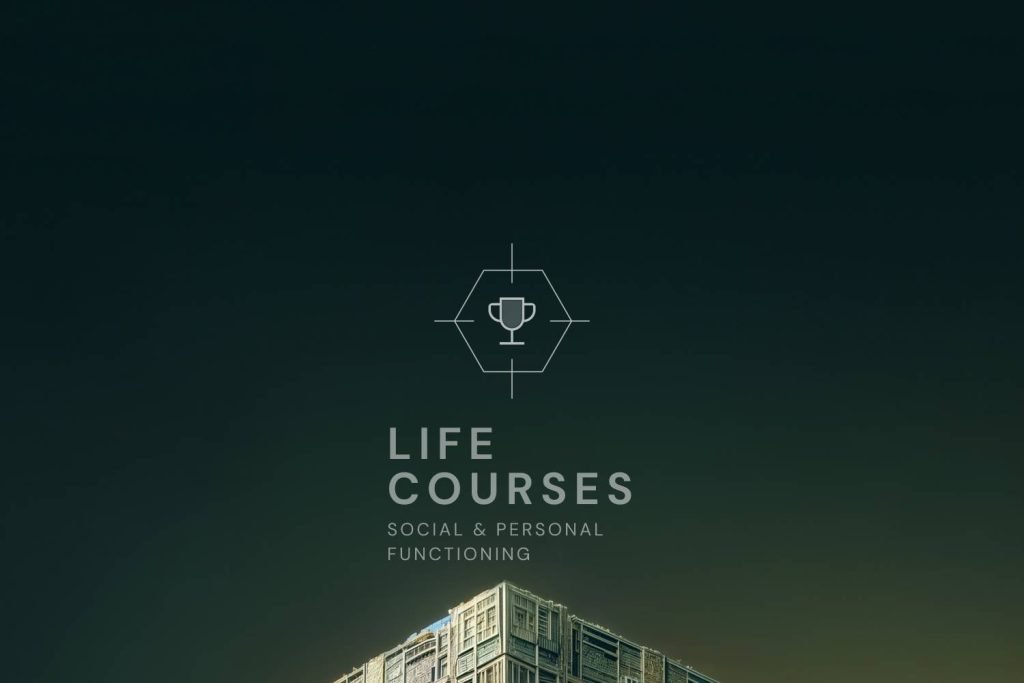In this flash interview, we sat down with our founder to address some of the most frequently asked questions. What followed was more than an answer — it was a raw and poetic reflection on purpose, struggle, and the strange parallels between martial arts and everyday life. From the intrusion of grappling to the transparency of boxing, this conversation gives a deep dive into the mind of our founder.
Interviewer: coach Leblanc | Interviewee: couns. Ydus
Question:
Why did you choose to become a competition coach?
Answer:
Sure, I could’ve been anything. I could be a fisherman [referencing Ford Fairlane, laughing].
But you know, life is like this napkin [raising the napkin nearby]. You want it to be square, but its corners fall everywhere. You want it to be straight, but it flies and waves. You want to grab it somewhere to do something with it, but all the sides are the same, so you end up turning it around until you feel stupid, then clean your hand with it [cleaning hands]. But when you have an intention with it, like fold it into a rose, you have a clear guide on how grasp it, you grab one of the corners and drag the whole thing wherever you want.
That is how you get somewhere in life, too. The things you need to fix to win in the arena are the same exact things you need to fix to win outside of it. But out there, it’s messy. Life has a lot of layers, you have a lot of roles and things pile up. In the arena, however, you know where to start, you work on one thing and go for the pieces you need for that. It’s like grabbing a corner of this napkin so you can drag the whole thing, in case your life, wherever you want.
Abstract answer I know, but you get the gist. I have my own story trying to get a grip on my life, with the character I have. I’m a lot for most people, it’s called ‘need for achievement’. About 10-15% of the population is put together in a similar way. Getting somewhere for them is a necessity, not a nice-to-have. With helping to grab that corner of the napkin, I help my people [referencing to combat athletes] to pull their life in the direction they want.
Question:
Do you mean that aiming to win a championship can actually save a life?
Answer:
Yes, and that’s a funny journey, because your combative career cannot be ringfenced from the rest of your life. What you’ve got in life is what you bring to the mat. Especially in grappling — there’s no faking it, no quick fix. Your life circumstances? They come with you. Your relationships, emotions, thoughts, every memory? They all come with you. Some fight with you, some against you. The more that’s against you, the less chance you have against your opponent. Just like in life, where the push is constant — expectations, social roles, other people’s emotional chaos and demand hitting you every hour. The more of your own inner world is fighting you, the easier it is for the opponent or the demanding world to take you down.
Preparing for a competition — when done right — is the same as preparing for the fights of life. No magic, just a considerate strategy based on deep understanding of how humans work.
What do you think you need to win in the arena? [Pause for answer] You need to read your opponent well. You need to adjust your condition and strategy based on what they’ve got. You need to create space and/or time for yourself to rest when you’re tired. And you need to compose yourself to strike when the timing is right.
What do you think you need to build a quality life? Same things.
The competition work is not simply parallel, but one and the same with the growth work in life. I would of course love to say that winning on the mat naturally translates into success in life, but we know that this is not the case. One can butcher through their entire competition path without any growth gained. This is often down to lack of adequate support and the ignorance of the industry. [Takes a deep breath] There are indeed very sad stories; a lot gets lost in this game, especially in MMA, hard to keep the original goal in sight.
Question:
How did you end up with Brazilian Jiu-Jitsu (BJJ)?
Answer:
It’s grappling arts in fact that I ended up with— because of their specific psychology. Within that, BJJ was my choice because it’s more open for adults or restarters, and the clubs are more divers. A lot of disciplines with Olympic and/or uniformised championship route have clubs that feel like a high school gym class, everyone that is different age or shape shifts to the periphery. I didn’t feel comfortable there.
Although grappling arts in general are quite unique in the scenario they represent. They depict a final stage of a conflict, when the shouting, intimidating and testing are all gone, and the only way forward is to go all in. This reflects quite well the overpowering feeling you get when life crashing down on you.
That hyperexposure you get in their skin-close setting, with your muscle tone, breath and anxiety noticeable for the opponent, even a simple training makes you feel seen from the inside out. Not often an adult experiences being that ‘naked’ in their life. We keep our distance and our social avatars up in most of our lives. Yet these are the occasions when we start to see something from down within. Tournaments are especially unique, as the grappling game is one go. Whatever you’ve got when you step on the mat — that’s all what you’ve got until you leave the mat. There’s no break between rounds, no dancing around, no restrategising. The opponent is on you every second, and you have to deal with it. Absolutely smothering.
It’s an extremely immersive and — accordingly — disturbing experience. Whatever your mental/emotional status quo was, it’s going to be questioned. That’s the bed of growth. The first stage of alchemy: the nigredo, if you’re familiar with the metaphor. [Referencing to Magnum Opus] You’ll be confused at that stage, feel a bit dirty, too, but you’ll find valuable stuff to take forward.
Question:
Do you coach only grappling, or other martial arts too?
Answer:
Boxing — I coach, but I don’t often do due to my other engagements. I like to coach it, though, because it’s easy to coach (not to practice).
The stances are clear with good distance so I have full visibility of the players — their moves, their dynamics, which makes the mental blocks also quite transparent. There are also long rest periods — not just between rounds but even during rounds there is a lot of dancing and positioning. It has a somewhat different challenge than grappling has due to this setup, because it means that thought circles can keep running, unlike in grappling. So the preparation strategy allows for, and in fact requires, more explicit practices, on top of the implicit ones dominating grappling preparation.
Those rest periods are golden — you could go out with a new strategy after every break. And you should, because you’ve gained new info about your opponent. But here’s the thing, that most don’t. They stick to one strategy per opponent even though the dynamic shows its face by the second or third round. From there things usually just keep merges toward the expected outcome, even though the game would allow for a switch.
Question:
Will we see you competing?
Answer:
Maybe. In a couple of years. My body needs to get back into gear. Training wasn’t possible during my years of intense research. And as deeply embedded the research was, and is, in my training, in the previous years, I have little left to invest into my physical journey.
But to be honest — my great goal with the championship of any kind was winning over my crippling anxiety. I built the first tournament preparation model out of blind dedication. I believed winning a championship would fix me, that’s how closely training was tied to my life goals. And I knew one thing very well, not from theory but from family history, that if I don’t get a grip on my issues, I die early and miserably.
The tournament preparation model I created for myself, I was practically fighting for my life— I collected every single piece I thought could help to build a winning path, because marching through that towards winning was my way out. My way to freedom.
Did I know it was possible to win without a championship? No. I’ve been competing since I was seven — in solo sports, in science, in creative fields and in business. To me, material results were tied to mental ones. That was the first time I got to the finish line without completing the journey I had planned.
If I compete again, it’ll be for curiosity or strategy. Not to slay my dragon — I already won that trophy. [Appearing emotional]
I know what you want to ask. [Smiling] If I got where I wanted to be without finishing the journey, could my clients, too? And yes, the goal is to win their life. If they need to go all the way to the final for that, so be it. I’ll be there, cheering. But if they feel they have everything they wanted out of it before that…well, even better.



